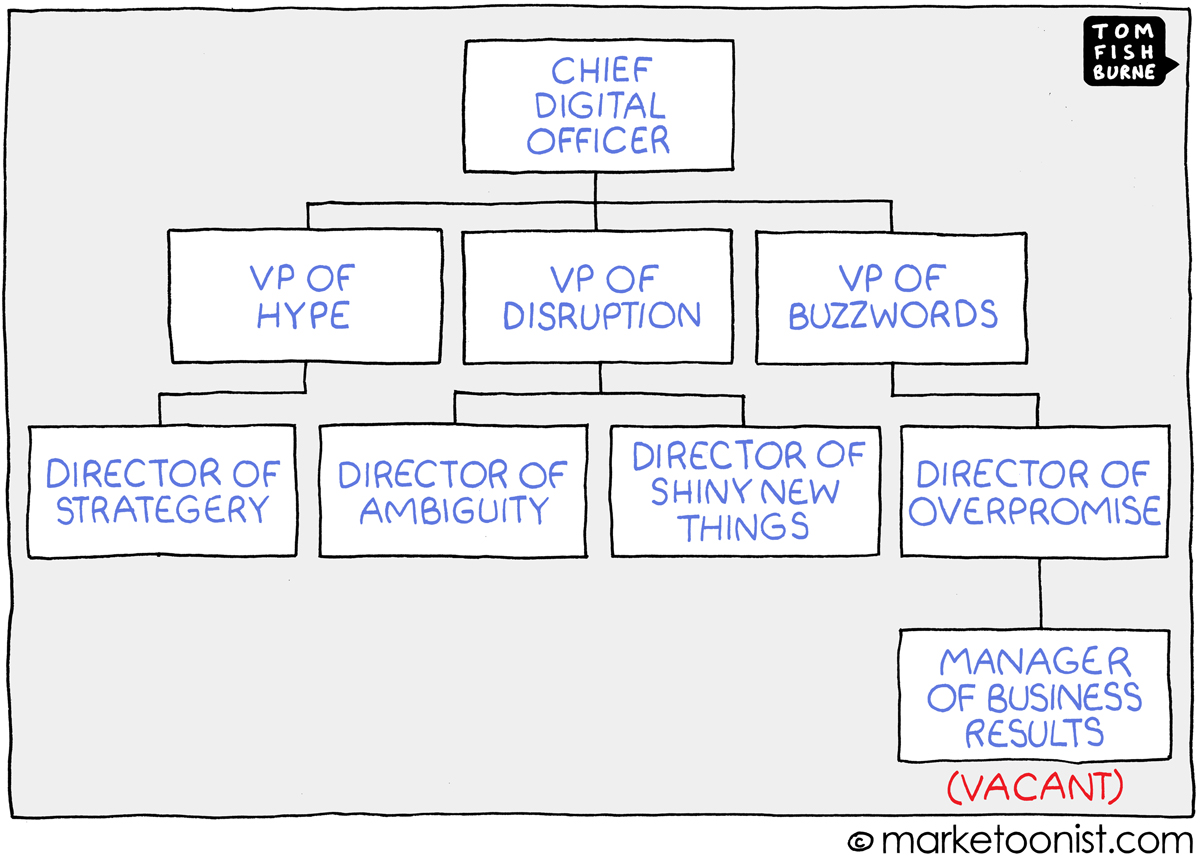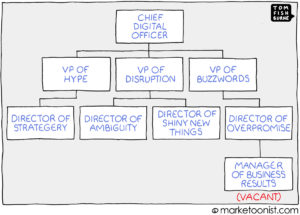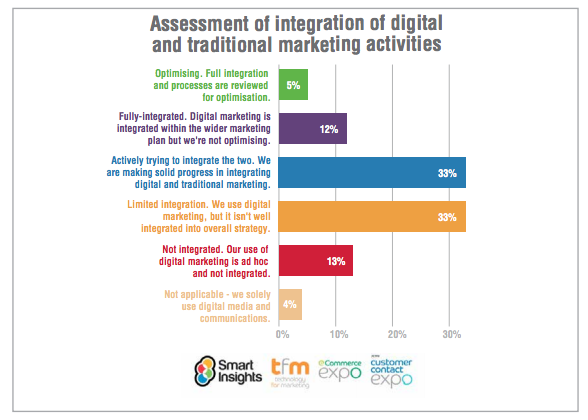
Digital everywhere… but in the end, it’s still marketing.
“It’s not about doing ‘Digital marketing’. It’s about marketing effectively in a digital world” – Diageo’s CEO Ivan Menezes.
This post about Digital transformation on marketoonist really resonated with me. With the coming of the internet and online marketing came a slew of new business opportunities and buzzwords … “digital first”, “mobile first”, “digital natives”, “Social listening”, “retargeting”, “online personas”, and I’m sure I missed a couple of hundred more. It makes you wonder what happened to the rest of the marketing mix in some people’s minds.
It’s Marketing. Period.
It’s neither digital marketing, nor traditional marketing. It’s marketing. Period. Start with your customer. Define who they are, where they get their information (in modern speak (buzzword warning) create personas of your customers), check if your product matches with this target market. This will help determine the channels you will need to use (whether it be online, print, events, “word of mouth” marketing, cold calling, whatever), and the money you can afford on these channels.
Let’s be honest, “Digital” and “Mobile” are one of many channels to get your content out. Marketing and – of course – sales both start with the customer. Whatever your product is, it needs to appeal to the right customer, and you need to get it in front of that customer. Do your homework first on who your customer really is, what he/she needs, and then you use the right channel to get to him/her. Does that include digital? Yes. Does it include Mobile? Sure, if that is a mediums that YOUR target customer uses. Just don’t lose sight of the basics in the move to mobile and online.
Granted, things are more measurable now. Gone are the early days pre-google and pre-facebook where it was a challenge to measure the effectiveness of your marketing. But still, for those millenials: the first spam mail was sent in 1978 already, banner ads have been around since 1993, doubleclick hit the market in 1996 and pay-per-click was introduced in 1999 – check out the history of online advertising.
Even “back then”, there was “content marketing”, now touted by some as the holy grail of digital marketing. For those unfamiliar with the term, “Content marketing is a marketing technique of creating and distributing valuable, relevant and consistent content to attract and acquire a clearly defined audience – with the objective of driving profitable customer action.” Well…getting the right content and call to action in front of your customer has always been important, the current trackable world just made it a lot more measurable.
nihil sub sole novum
Content marketing has been around for decades, you can read that in this iscoop article. Did you know that one of the first books on content marketing was published in 1999? It’s called “Make Your Website Work for You: How to Convert Online Content Into Profits”. From the back cover: “You’ll find the basic rules for online marketing and the reasons why content marketing works. You’ll learn to create content that drives consumers to your site and sells products, and how to track and use consumer information to build profits both on- and off-line. “Content is King, ” advises author Cannon, who presents ten simple steps for developing and managing effective content. Discover how to optimize your site’s “metatags” so that search engines draw the greatest number of contacts.” In 1999…
On and offline / digital and traditional need to come together, and there’s hope. According to Smartinsight’s research on Managing Digital Marketing in 2016 progress is made as marketers move towards integrated planning of digital and traditional activities, but as the report says “there is still plenty of room for improvement with only one-quarter of companies satisfied with their level of integration across digital and traditional communications and 5% fully integrated and optimised.” If you’re stuck in your traditional marketing, snap out of it and embrace digital. But also vice versa, don’t forget the basics of marketing.




Recent Comments